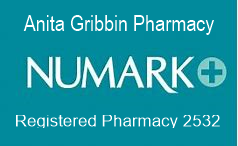Blood cholesterol testing
What is cholesterol?
Cholesterol is a natural fatty substance produced in the liver which plays an essential role in human functioning. Cholesterol can also be obtained through certain foods we eat. Cholesterol is involved in production of certain hormones; it is an essential building block in the structure of human tissues and assists in bile production in the liver. Cholesterol also plays a role in skin cells manufacturing vitamin D from sunlight.
Why should I get my cholesterol checked?
The higher your cholesterol levels, the higher your risk of a heart attack or stroke. High cholesterol does not usually cause symptoms, so you can only find out from getting it tested.
While cholesterol plays essential roles in the body, too much cholesterol can be dangerous as it can narrow your arteries. This can lead to muscle pain in the legs, heart disease and erectile dysfunction. Eventually the blood vessel can block which could potentially cause a heart attack or stroke.
If you find out your levels are high then you can take steps to lower cholesterol levels.
Who should check cholesterol levels?
Most healthy adults should have cholesterol levels checked every five years. Those at risk of high cholesterol should check cholesterol levels more frequently including:
- Aged over 40 and never checked before
- Family history of high cholesterol or heart problems
- Overweight or obese
- Drink alcohol regularly
- Smokers
- Lack of physical activity
- Those with certain health conditions including diabetes, high blood pressure, thyroid, kidney disease, heart disease etc
Understanding cholesterol and all the different types
Cholesterol as a fatty substance doesn’t dissolve easily in water and so it attaches to a protein to travel through the blood.
– see the following link from the British Heart Foundation.
There are two main types of cholesterol.
LDL stands for low density lipoprotein and is sometimes called ‘bad’ cholesterol. LDL carries cholesterol from your liver to the cells that need it, but too much can make you more likely to have a heart attack or stroke.
HDL stands for high density lipoprotein and is sometimes called ‘good’ cholesterol. HDL carries cholesterol away from the cells back to the liver to get broken down.
Triglycerides are another kind of fat which are made in the body by the liver, similar to LDL.
Cholesterol levels vary from person to person but in general the lower the LDL and non-HDL; and the higher the HDL values, the less risk of heart attack and stroke.
Your cholesterol test will measure the levels of different types of cholesterol including:
Total cholesterol
HDL Cholesterol
LDL Cholesterol
Triglycerides
How to lower cholesterol
High cholesterol can be inherited, but often high levels can be reversed with lifestyle changes.
- Eat a low saturated fat diet including more wholegrain foods, fish, lean meat, olive oil, fresh fruit and vegetables.
- Aim for 150 minutes of exercise a week. Start small and build up with daily walking.
- Stop smoking- join our scheme for assistance with this.
- Avoid drinking more than 14 units of alcohol a week and have several drink free days each week.
- Lose weight if overweight or obese
- Sometimes medication is used to reduce high cholesterol.
What does the test involve?
Before the test
You may be asked to fast (no food or drink except a little water) for 8 to 12 hours before your cholesterol test. When booking the test you will be advised of what action to take and what is safe for you.
During the test
The test is usually booked for the morning time.
You may be asked some questions about your smoking status, exercise and dietary habits.
The test is carried out by pricking your finger and a couple of drops of blood are collected and placed on a testing cassette. This is put into a machine which checks your cholesterol levels in a few minutes.
After the test
The results will be explained, and you may be advised of some changes you can make to improve the readings such as changing your diet and exercise habits. You may also be referred to your GP for further treatment. Feel free to ask any questions you like about the results.




